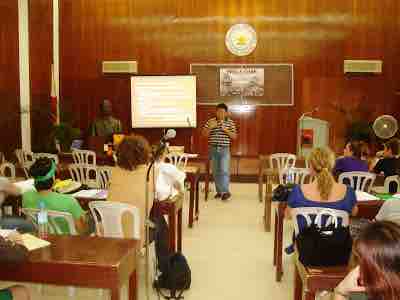Finishing Well
Leaving the audience with a bang ensures making a lasting impression. Remember, the last thing presented tends to be what the audience remembers the best. The ending of a speech is as important as the beginning and body. The conclusion should do what the introduction did, except in reverse.
Ways of Ending a Speech
After completing the presentation, the presenter should summarize the main points again without repeating verbatim what was said in the introduction. You then want to "wow" your audience with one of the techniques you used to introduce your speech. These techniques can include a quotation, a startling statistic, a personal experience, a joke, or a formal closure. If you are presenting persuasive information, you may particularly want to end your speech with a call to action. What are you asking of your audience? What can they do after listening to your speech? Finally, asking for questions is a good way to minimize any confusion that the audience might have or bring to light any relevant connections which you may have overlooked.
Thank Your Audience
While this is one of the most important things to do at the end of a presentation, it is also one of the most frequently forgotten things. Remember that the audience has given up their time to listen to you. They could have been anywhere else in the world doing anything they wanted to do, but they were there with you. You should appreciate that. One way of thanking your audience might be to simply say, "That is all I have for today. I appreciate you giving me your time. Thank you very much and have a great day. "

Training
Training can be conducted in many ways, such as in a lecture or classroom format (above), online, or any number of ways.
Taking Questions
Sometimes it is necessary to take questions at the end of your speech. Many speakers find this challenging, as it is not part of the prepared talk. However, by drawing on your mastery of your subject matter and accurately gauging what the questioner is really asking, you will be able to answer any questions asked in a satisfactory manner. Answering questions effectively strengthens the effect of your speech, as it confirms your authority on the topic in the mind of your audience.